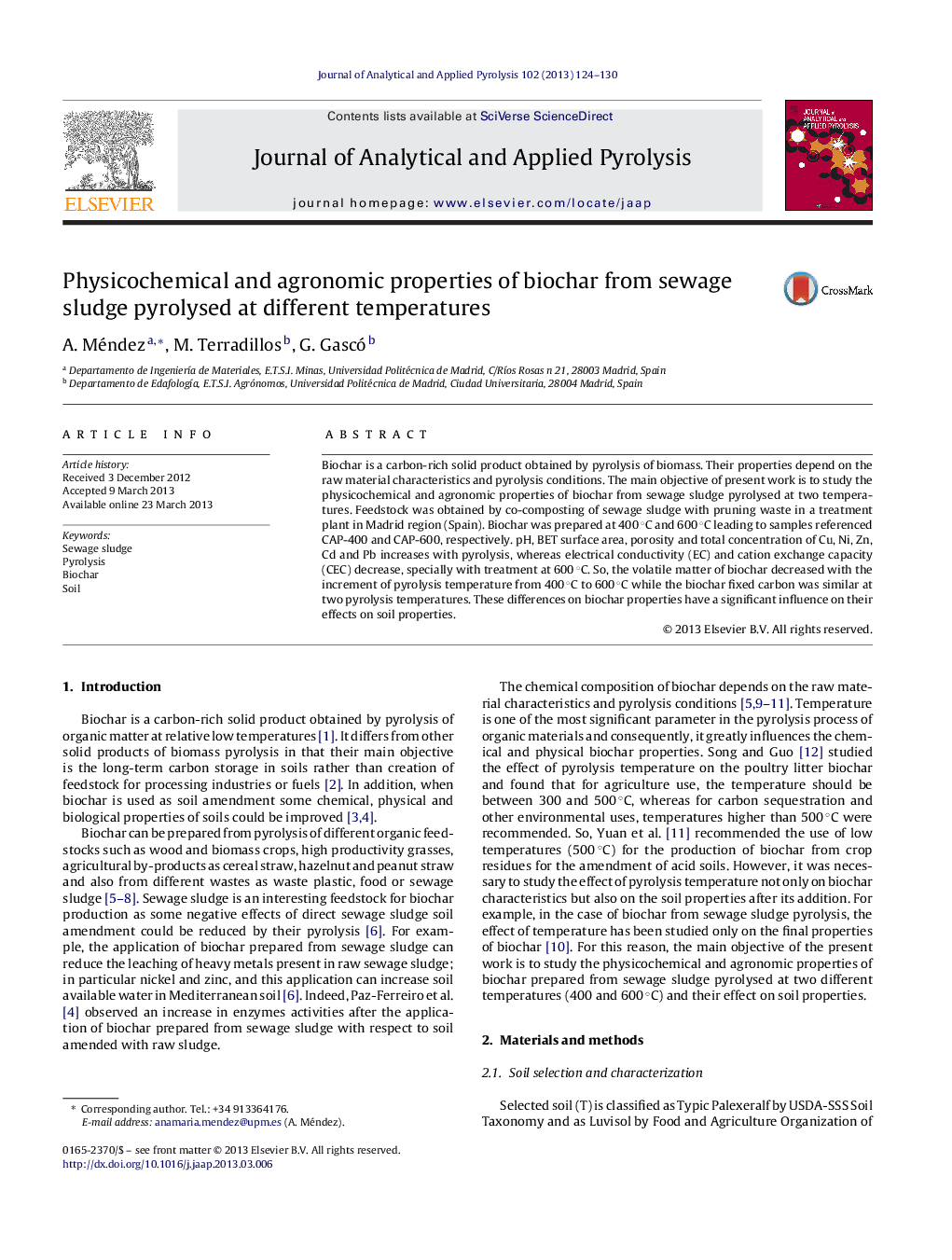| Article ID | Journal | Published Year | Pages | File Type |
|---|---|---|---|---|
| 1196896 | Journal of Analytical and Applied Pyrolysis | 2013 | 7 Pages |
•Two biochar samples from sewage sludge pyrolysis at 400 and 600 °C were prepared.•pH, porosity and total metal concentration increase with pyrolysis temperature.•CEC and EC decreases with pyrolysis temperature especially at 600 °C.•Biochar pyrolysed at 600 °C increases soil field capacity and available water.
Biochar is a carbon-rich solid product obtained by pyrolysis of biomass. Their properties depend on the raw material characteristics and pyrolysis conditions. The main objective of present work is to study the physicochemical and agronomic properties of biochar from sewage sludge pyrolysed at two temperatures. Feedstock was obtained by co-composting of sewage sludge with pruning waste in a treatment plant in Madrid region (Spain). Biochar was prepared at 400 °C and 600 °C leading to samples referenced CAP-400 and CAP-600, respectively. pH, BET surface area, porosity and total concentration of Cu, Ni, Zn, Cd and Pb increases with pyrolysis, whereas electrical conductivity (EC) and cation exchange capacity (CEC) decrease, specially with treatment at 600 °C. So, the volatile matter of biochar decreased with the increment of pyrolysis temperature from 400 °C to 600 °C while the biochar fixed carbon was similar at two pyrolysis temperatures. These differences on biochar properties have a significant influence on their effects on soil properties.
